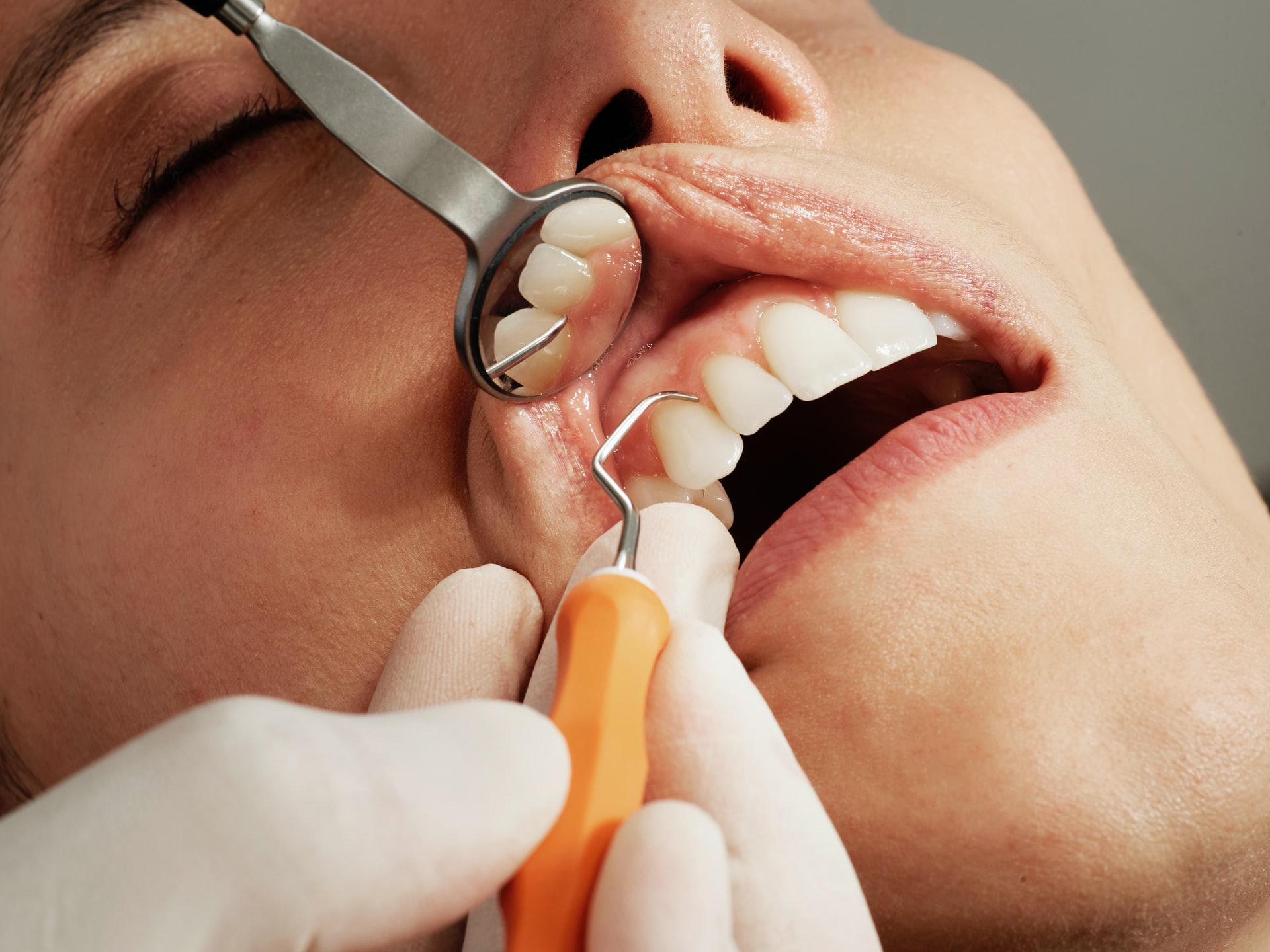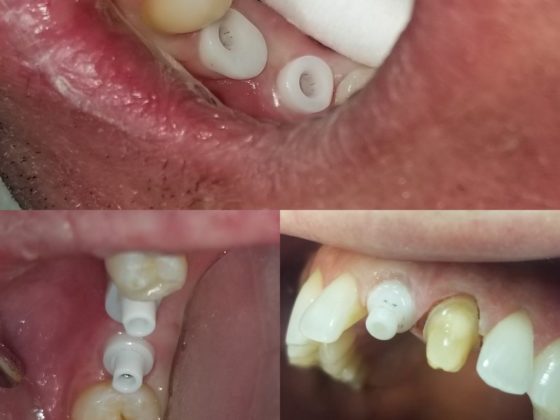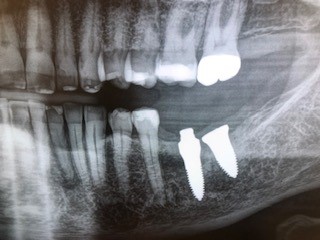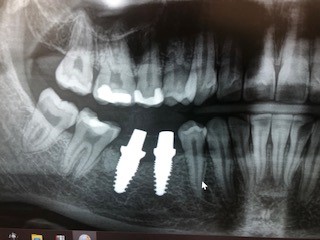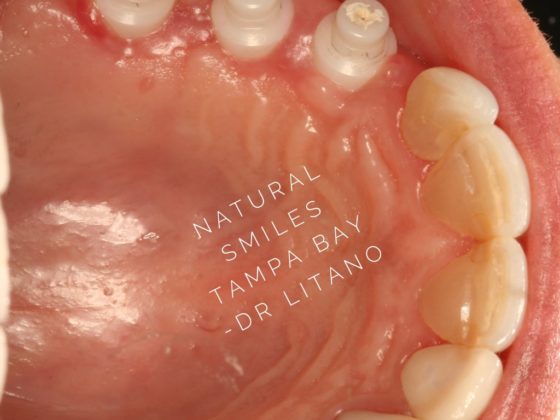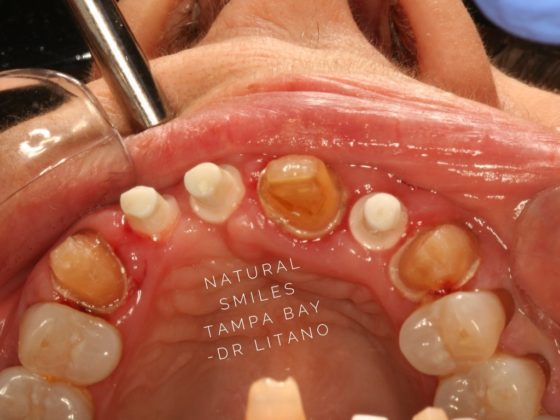Why Do Patients Need Dental Implants?
- Failing root canals
- Heavily restored teeth – where the teeth have been crowned in re-crowned multiple times
- Decay below the crown or bridge
- Fracture of crowned or root canaled teeth
- Upgrade to dentures
- Physical trauma resulting in tooth loss
- Birth defects resulting in missing adult teeth
- Cancer or diseases affecting significant jaw or bone removal
- Bone infections
- Root abscesses and infections
- Other
Dental Implants are the Superior Solution Among All Restorative Options
Restorative Options for Missing Teeth & Endentulous Patients For patients with 1 or more missing teeth, but less than a full jaw of missing teeth (fully edentulous jaw or mandible) a dental implant is the optimal restoration.
- Dental Implants – Permanent
- Dental Bridge – Permanent
- Dental Partial Prosthesis – Removable
- Full Prosthesis or Denture – Removable
Preferred Method of Tooth Replacement
Dental implant treatment is the preferred method of tooth replacement in most situations, for all missing teeth due to their significant benefits over the other, less preferred restoration options. For single or several missing teeth, the optimal treatment restoration is a dental implant, and if the patient is a candidate, a zirconia dental implant (depending on location of missing teeth.) Some of the benefits of dental implant treatment include:
- A dental implant preserves the bone by replacing the missing tooth root.
- A dental implant enhanced the appearance of the face, helping develop bone and provides natural bone support for facial musculature and skin (especially around lips and the mouth), helping achieve a move youthful appearance for patients with missing teeth.
- A dental implant protects the adjacent natural teeth, as opposed to compromising them.
- A dental implant improves breathing and blood oxygenation, as opposed to removable that can block the natural movement of airflow into the body and even cause or exacerbate sleep apnea.
- A dental implant improves full mouth mastication (chewing) function by helping to evenly distribute pressure forces (during chewing) among the arches and equally among teeth, like natural teeth, unlike the options.
- A dental implant improves reduced wear of other teeth protecting all other teeth and increasing their longevity over the long term.
- A dental implant improves reduced wear of other teeth protecting all other teeth and maintaining the proper alignment and proportions of the smile, which is deteriorated and becomes less attractive when teeth are worn down.
- A dental implant improves symptoms of sleep apnea, which can be caused or exacerbated by removable non-implant restorations
- Superior long-term aesthetics are achieved by preventing a visible defect in the bone.
- An implant crown is more hygienic than a bridge because it is cleaned like a natural tooth and does not have food stuck underneath like a pontic bridge, partial or denture.
General Advantages of Dental Implants
- Dental implant treatment is the only solution that preserves bone and gum levels
- Maintains the facial musculature, achieving a more youthful, uplifted, fuller appearance of the face
- Superior long-term aesthetics by preventing a visible defect in the bone as a result of tooth loss.
- No compromise to the health of adjacent teeth (No drilling or cutting of healthy adjacent teeth)
- Dental implant restorations have a much better long-term prognosis (Dr. May guarantees 10 years on all dental implants and our office has average longevity experience with dental implants lasting an average of 25+ years)
- Documented clinical studies indicate success rates for implants of 95-98% for 20-50 years
- Significantly reduced risk of periodontal disease formation at the surgical site of dental implant, due to bone and gum regrowth and continued support, versus bridge which typically results in poor hygiene, periodontal inflammation, disease progression, gum recession, and ultimately progressive bone loss.
- High success rates (better than 97% for 10 years)
- Decreased risk of caries of adjacent teeth
- Decreased risk of endodontic problems on adjacent teeth
- Improved hygiene
- Decreased cold or contact sensitivity of adjacent teeth
- Psychological advantage
- Decreased abutment tooth loss
Disadvantages of Dental Implants
- More planning time and treatment time required
- Treatment requires surgical procedure
- Higher cost (but results in lifetime stability and less future investment for revisions)
Zirconia Dental Implant with Zirconia Abutment – 100% Metal Free, Allergy Free Option Why Zirconia Dental Implants? Zirconia dental implants are bio-inert (neutral to the body and tissues) biocompatible (integrate naturally with the body and tissues) and entirely hard and soft tissue-friendly, there are no allergic reactions and no sensitivity to temperature. Given that they have a tooth color-like appearance, zirconia implants have an aesthetic advantage over titanium implants along with the other many unique properties that make zirconia dental implants the most superior dental implants available. Good esthetic results can also be obtained with titanium implants when ceramic posts and crowns are used. However, this significantly increases the cost of treatment. Ceramic implants cause little to no inflammation, display minimal plaque retention, and in case there is slight gum recession or shrinkage, they do not reveal unsightly gray lines like titanium implants. Zirconia implants do not corrode and will not have any impact on taste in the mouth, and importantly, avoid the disturbing health effects of galvanization (electro-current disturbance) which naturally disturbs the body’s energy meridians, inter-cellular electric currents and causes or accelerates disease processes. Zirconia Dental Implants are the ultimate alternative for patients who are not comfortable with or are not able to tolerate metal (titanium) implants. Can any Surgeon Place Zirconia Dental Implants? Theoretically, yes. However ceramic implantology has now propelled dental implantology further into the realm of esthetic and cosmetic dentistry. Zirconia implants are one-piece or 2-piece (see picture), and their placement angle and position is extremely critical and must be precise. Unlike two-piece titanium implants errors in implant placement cannot be corrected with angled abutments (posts). Therefore any surgeon involved with these ceramic implants should have a high level of prosthetic awareness. Enhanced diagnostic tools and surgical preparation steps such as three-dimensional imaging, virtual planning, and computer generated surgical guides should always part of the implantation protocol
